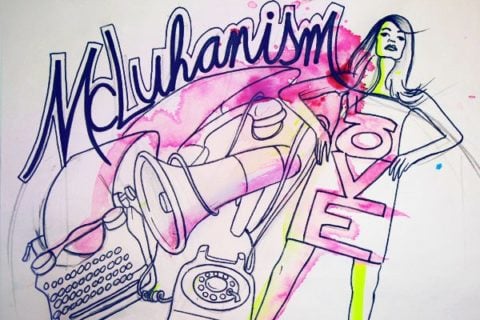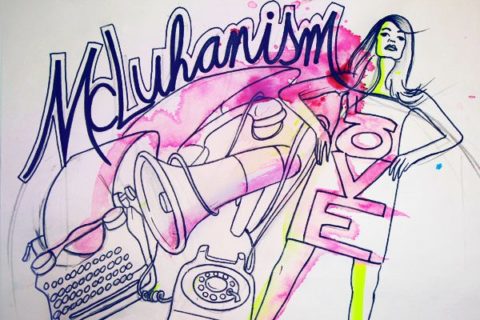SNP’s word of the day: McLuhanism


Word: McLuhanism
Definition: Basically, a set of principles derived from and defined by the thinking of McLuhan, as in Marshall, the ’60s radical thinker and media prophet. You literally can’t be Canadian and go to high school without knowing at least one thing about him: usually, that “the medium is the message.”
Usage: To paraphrase Woody Allen in Annie Hall: “And the funny part of it is, McLuhanism, you don’t know anything about McLuhanism!”
Why you should know it: Today’s his birthday! McLuhan would have been 100 today (and probably still talking). Happy Birthday!
Also, because there’s a McLuhan exhibit at Ryerson University this weekend, and if you live in Toronto, you should go. It provides an illustrated history of more than 80 of the man’s original aphorisms, also called McLuhanisms, each accompanied by a relevant object (i.e. a typewriter), a video and/or a sound bite. Curator Sal Greco’s favourite is the saying: “When you are on the phone, you have no body,” meaning that you can’t make a call and be physically present. What would McL. make of our perma-connected, multi-channel-communicating existence today? Are we in a million places at once, or are we nowhere? Cue scary whistling sounds.
Of course, McLuhan wasn’t eerily right about everything; for example, his belief that we had amputated our legs and replaced them with automobiles? Okay, Marshall. He also predicted an “aural culture” (based on the popularity of radio and telephones), but couldn’t have seen (pun intended) the rise of video in everything from gaming to iPads. Still, when a guy has his own -ism, he must’ve been right—or at least massively influential—about enough stuff. Today we have neo-McLuhanists like Douglas Coupland, who wrote an appropriately weird McLuhan biography called You Know Nothing Of My Work!, and David Cronenberg, who studied with McLuhan in ’60s Toronto and went on to make some fairly effed-up films (like Videodrome) about the relationships between humans and media, electronics and flesh.
And you, if you (over)use Twitter and have ever realized with a jolt that you are actually thinking in 140 characters—that your brain feels rewired to achieve snap judgments with minimal verbiage and a high retweet potential—well now you believe in McLuhan too. The final message of a medium is its transformation of the means of thinking in whoever uses it. Maybe frightening. Almost definitely true.







